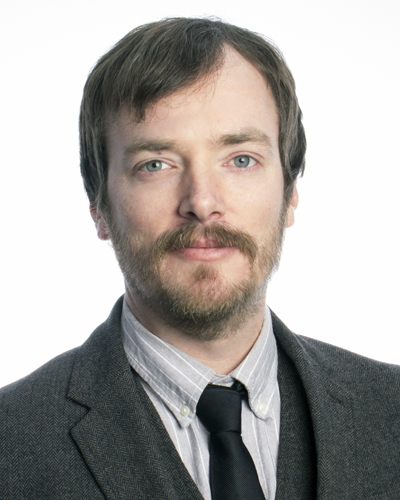Research Interests
- Assessment
- Curriculum Studies
- Democracy and Citizenship
- History Education and Historical Consciousness
- History of Education
- Pedagogy
- Public History and Public Memory
- Social Studies Education Research
- Teacher Education Research
- Teacher Research
- Historical Thinking
- Historical Consciousness
- Inquiry
Biography
Dr. Lindsay Gibson (he/him/his) is an Assistant Professor in the Department of Curriculum and Pedagogy at the University of British Columbia. Prior to starting at UBC on July 1, 2019 Lindsay was an Assistant Professor in the Department of Elementary Education at the University of Alberta from 2015-2019. He completed his PhD in Curriculum and Pedagogy at UBC in 2014, and taught secondary school history and social studies in Central Okanagan Public Schools (Kelowna, B.C.) for twelve years.
For more than fifteen Lindsay has collaborated with various organizations including The Critical Thinking Consortium (TC2), Canada’s History, Historica, and others to develop learning resources and professional learning opportunities for pre and in-service teachers focused on promoting historical thinking and historical inquiry. Lindsay has worked on K-12 social studies curriculum writing teams in B.C. and Alberta, is the Director of the Historical Thinking Project, and organizes annual Virtual Historical Thinking Institutes and Historical Thinking Communities of Practice in partnership with Canada’s History.
Lindsay’s research focuses on various aspects of history and social studies education including curriculum design, assessment, historical thinking, historical consciousness, teacher education, commemoration controversies, inquiry, difficult histories, and teaching and learning. He has published several journal articles and book chapters about his research interests.
Lindsay has been a co-applicant and principal investigator for several research studies and funded projects that have received funding. Lindsay is currently a co-researcher on the EU MakingHistories grant (2023-2026), and a co-investigator on the “Thinking Historically for Canada’s Future” project (2019-2026) that was awarded a $2.5 million SSHRC Partnership Grant. This grant will bring together various constituencies involved in history education including academic historians, history education scholars working in faculties of education, Indigenous scholars, graduate students and highly qualified personnel (HQP), museum educators, teachers, ministries of education, policy makers, and local, provincial and national history and heritage organizations to achieve the following goals and objectives:
- Map the terrain of history education in K–12;
- Ascertain to what extent history and social studies teaching helps students engage with the key issues or problems facing Canadian society today;ian society today;
- Identify and develop evidenced-based practices in history teaching, learning, assessment, and resource development, and evaluate their efficacy in providing powerful and engaging learning experiences for students, particularly in terms of building trans-systemic understanding across knowledge systems;
- Cultivate communities of practice with pre and in-service teachers, that are grounded in theoretical and empirical research on history education pedagogy to promote engaged and critical historical thinking; and,
- Using findings that emerge from the research, make evidence-based policy recommendations for history curriculum, pedagogy, and assessment through proactive connections with ministries of education, faculties of education, museum educators, Indigenous organizations and stakeholders, publishers, other curriculum developers, and practicing teachers.
Invited Presentations
Gibson, L., & Davies, M.(2023, February 23). From Hastings Mill School to wek̓ʷan̓əs tə syaqʷəm: The Naming and Renaming of Vancouver Schools 1872-2022. Invited lecture to the Vancouver Historical Society, Vancouver, BC. https://www.youtube.com/watch?v=pFDRbR1_4WA&t=2s
Gibson, L. (2022, September 7). Assessing historical thinking: Challenges and possibilities. Keynote presented online at the 8th Annual International History Education Symposium, Adana, Turkey.
Gibson, L., & Miles, J. (2022, April 21). Rethinking presentism in history education. Invited presentation at the University College London Institute of Education (IoE) History Special Interest Group Seminar, London, UK.
Gibson, L. (2022, March 17). Mis/Disinformation: Nurturing thinking across the senior years. Invited presentation to administrators and teachers from the Seven Oaks School Division, Winnipeg, MB.
Gibson, L. (2021, October 7). Thinking historically about commemoration controversies. Invited lecture for the UBC Extended Learning course: Perspectives on Canadian and World News.
Gibson, L. (2020, November 3). Thinking historically about commemoration controversies. Invited online presentation to Social Studies Saskatchewan, a professional growth network of the Saskatchewan Teachers’ Association.
Gibson, L. (2018, April 9). Small cards, big picture: Constructing students’ narrative frameworks. Invited presentation University College London Institute of Education (IoE) History Special Interest Group Seminar, London, UK.
Gibson, L. (2017, November 21). Thinking historically for Canada’s future. Invited presentation as part of the “Making the Case for History Education” panel discussion at the 10th annual Canada History Forum, “Making History Relevant” held at the Canadian Museum of History, Gatineau, QC.
Presentations at International, National, and Regional Conferences
International
Duquette, C., Gibson, L., Pageau, L., Potvin, M. (2022, 9 Mars). Des petites cartes pour une grande histoire : utilisation de cartes chronologiques pour développer la pensée historique des élèves québécois et albertains, Colloque international des didactiques de l’histoire, de la géographie et de l’éducation à la citoyenneté, Toulouse, France.
Gibson, L. & Duquette, C. (2021, September 2). Small cards, big picture: Using historical thinking to construct large-scale narratives. Workshop presented at the History Educators International Research Network (HEIRNET) Online Conference.
Gibson, L. & Duquette, C. (2021, September 1). Canadian teachers rating historically significant events: Similar criteria for temporally and theoretically diverse narratives. Paper presented at the History Educators International Research Network (HEIRNET) Online Conference.
Gibson, L. & Duquette, C. (2021, August 31). Canadian history teachers’ thinking about commemoration controversies. Paper presented at the History Educators International Research Network (HEIRNET) Online Conference.
Gibson, L. (2020, November 11). Conceptualizing historical thinking in Canada, the United States, and the United Kingdom: A comparative approach. The Graz Conference: Core Concepts of History Didactics and Historical Education in Intercultural Perspectives. Reflections on Achievements – Challenges for the New Generation, Graz, Austria.
Gibson, L. (2019, October 10). Digital oral histories for reconciliation (DOHR): The Nova Scotia Home for Colored Children history education initiative. The International Seminar on Innovative Digital Practices in History Education, Autónoma University of Madrid, Spain.
Gibson, L. & Miles, J. (2018, November 29). Developing a planning framework for effective historical inquiry. Paper presented at Annual Conference of the College and University Faculty Assembly (CUFA) of the National Council for the Social Studies (NCSS). Chicago, IL.
National
Gibson, L. & Davies, M. (2022, October 14). “We have a policy in certain parts of this city”: School naming in Vancouver 1872-present. Canadian History of Education Association (CHEA)/Association canadienne d’histoire de l’éducation conference (ACHÉ), Victoria, BC.
Gibson, L. (2022, May 16). Addressing climate change in Canadian history education: Challenges and opportunities. Paper presented at the online 2022 Annual Meeting of the Canadian Historical Association, Congress of the Social Sciences and Humanities.
Gibson, L. (2022, May 13). Addressing climate change in Canadian history education: Challenges and opportunities. Invited presentation at the Canadian Critical Pedagogy Association Pre-Conference 2022 Pre-Conference “Meeting the Storm Decolonial K-12 History Education for a Time of Colliding Crises,” Kingston, ON.
Gibson, L. (2021, October 23). Introduction to historical thinking. Workshop presented at the Teaching History & Social Studies in 2021 online conference “Inquiry, Equity and Engagement” organized by the Association for Canadian Studies and the Social Studies Education Network of Canada (SSENC).
Gibson, L. (2021, October 23). Introduction to historical thinking: Snapshots in time. Workshop presented at the Teaching History & Social Studies in 2021 online conference entitled “Inquiry, Equity and Engagement” organized by the Association for Canadian Studies and the Social Studies Education Network of Canada (SSENC).
Gibson, L. & Duquette, C. (2021, July 9). What events in Canadian history are most significant? A survey of history teachers. Paper presented at the Annual Canadian Historical Association Online Conference.
Gibson, L. & van Kessel, C.(2020, June 2). Omissions, oversimplifications, and distortions: Flattening the ethical dimensions of history. Paper presented at the Annual Meeting of the Canadian Society for the Study of Education, Congress of the Social Sciences and Humanities, London, ON.
Gibson, L. & Duquette, C. (2020, June 2). Small cards, big picture: Helping students construct narratives about Canadian history. Paper presented at the Annual Meeting of the Canadian Society for the Study of Education, Congress of the Social Sciences and Humanities, London, ON.
Gibson, L., & Duquette, C. (2019, November 21). Small cards, big picture: Constructing students’ narrative frameworks in Canadian history. Invited presentation at the Association of Canadian Studies/Association d’études canadiennes conference Officially 50! A Conference Marking Fifty Years of Linguistic Duality and Education in Canada, Gatineau, QC.
Gibson, L. (2019, July 5). Thinking historically about Canadian commemoration controversies. Paper presented at the Doing History in Precarious Times symposium hosted by the L.R. Wilson Institute for Canadian History, McMaster University, Hamilton, ON.
Gibson, L. & Peck, C.L. (2019, June 3). “But I’ve only taken one history course”: Preparing pre-service elementary teachers to teach historical thinking. Paper presented at the Annual Meeting of the Canadian Society for the Study of Education, Congress of the Social Sciences and Humanities, Vancouver, BC.
Gibson, L., & Duquette, C. (2019, June 3). Small cards, big picture: Teaching students to think historically about Canadian history. Paper presented at the Annual Meeting of the Canadian Society for the Study of Education, Congress of the Social Sciences and Humanities, Vancouver, BC.
Gibson, L., Peck, C.L., & Duquette, C.(2018, November 15). The big six +1: Narratives and historical interpretations. Invited presentation at the “Next 150” conference organized by the Ontario History and Social Studies Association (OHASSTA) and the Association for Canadian Studies/l’Association d’études canadiennes (ACS/AEC), Toronto, ON.
Gibson, L. (2018, October 20). Teaching big picture understanding of Canadian history. Teacher workshop presented at the 20th biennial meeting of the Canadian History of Education Association/Association canadienne d’histoire de l’éducation (CHEA/ACHÉ), Fredericton, NB.
Duquette, C., & Gibson, L. (2018, October 20). Small cards, big picture: Constructing students’ narrative frameworks in Canadian history. Paper presented at the 20th biennial meeting of the Canadian History of Education Association/Association canadienne d’histoire de l’éducation (CHEA/ACHÉ), Fredericton, NB.
Gibson, L., Feisst, D., Peck, C.L., & Frail, K. (2018, October 20). Enhancing historical thinking with history textbooks from the past. Paper presented at the 20th biennial meeting of the Canadian History of Education Association/Association canadienne d’histoire de l’éducation (CHEA/ACHÉ), Fredericton, NB.
Gibson, L. (2018, May 28). Can you teach public history? L’histoire publique, ça s’enseigne? Panel discussion at the at the annual meeting of the Canadian Historical Association/Société historique du Canada, Congress of the Social Sciences and Humanities, Regina, SK.
Gibson, L. (2018, May 27). Small cards, big picture: Constructing students’ historical reference frameworks in Canadian history. Paper presented at the Annual Meeting of the Canadian Society for the Study of Education, Congress of the Social Sciences and Humanities, Regina, SK.
Gibson, L. & Miles, J. (2018, May 28). Proposing a model for conducting student inquiry in the history classroom. Paper presented at the Annual Meeting of the Canadian Society for the Study of Education, Congress of the Social Sciences and Humanities, Regina, SK.
Regional
Gibson, L., & Wenner, C. (2023, February 10). Assessing disciplinary thinking in social studies: Challenges and possibilities. Workshop presented to teachers from the Independent Schools Association of BC, Vancouver, BC.
Gibson, L. (2022, October 21). Using Snapshots in Time to teach and assess historical thinking. Invited workshop at the MSSTA-MTS Professional Development Day “Canada and an Everchanging World,” Winnipeg, MB.
Gibson, L. (2022, March 24). Inquiring into inquiry. Invited workshop to Seven Oaks School Division teachers, Winnipeg, MB.
Gibson, L. (2021, November 24). Inquiring into inquiry: Part 2. Workshop presented to teachers from the Seven Oaks School Division, Winnipeg, MB.
Gibson, L. (2021, October 20). Inquiring into inquiry: Part 1. Workshop presented to teachers from the Seven Oaks School Division, Winnipeg, MB.
Gibson, L. (2021, September 22). Introduction to historical thinking. Workshop presented to teachers from the Seven Oaks School Division, Winnipeg, MB.
Gibson, L. (2020, October 22). Introduction to Historical Thinking. Workshop with social studies and history teachers from Seven Oaks School Division, Winnipeg, MB.
Gibson, L. (2019, September 27). Embedding historical thinking in your teaching practice. Invited all-day workshop to social studies and history teachers from Seven Oaks School Division, Winnipeg, MB.
Gibson, L. (2018, February 23). A model for conducting student inquiry to learn history. Annual Okanagan Zone Professional Development Day organized by the Central Okanagan Teachers’ Association (COTA), Kelowna, BC.
Selected Publications
Refereed Journal Articles
Gibson, L., Duquette, C., & Leighton, J.P. (2022). What events in Canadian history are most significant? A survey of history teachers. The Canadian Historical Review. https://doi.org/10.3138/chr-2021-0010
Miles, J., & Gibson, L. (2022). Rethinking presentism in history education. Theory & Research in Social Education, 1-21. https://doi.org/10.1080/00933104.2022.2115959
Gibson, L., Milligan, A., & Peck, C. (2022). Addressing the elephant in the room: Ethics as an organising concept in history education. Historical Encounters, 9(2), 45-63. https://doi.org/10.52289/hej9.205
Gibson, L. (2021). The case for commemoration controversies in Canadian history
education. Canadian Journal of Education/Revue Canadienne de l’éducation, 44(2), 434–465. https://doi.org/10.53967/cje-rce.v44i2.4451
Duquette, C., Gibson, L., Pageau, L & Potvin, M. (2020). « Des petites cartes pour une grande
histoire: Utilisation d’un jeu de cartes historiques pour enseigner la pensée historique », Didactica Historica, 6, 1–13.
Gibson, L., & Case, R. (2019). Reshaping Canadian history education in support of reconciliation. Canadian Journal of Education/Revue Canadienne de l’éducation, 42(1), 251-284.
Milligan, A., Gibson, L., & Peck, C. L. (2019). On taking a more encompassing view: A response to den Heyer. Theory & Research in Social Education, 47(2), 1-2.
Milligan, A., Gibson, L., & Peck, C. (2018). Enriching ethical judgments in history education. Theory & Research in Social Education, 46(3), 449-479.
Gibson, L. (2017). The ethical dimension of Canadian commemoration controversies. Canadian Social Studies, 49(2), 15-19. Retrieved fromhttps://drive.google.com/file/d/0BxSOiXCgdqIQXV2MlpTMjBJcjN5WUJzWDR2Y2NTa3l5WHow/view
Gibson, L., & Case, R. (2017). Historical hegemony or warranted adaptation? A response to Smith. Canadian Journal of Education/Revue Canadienne de l’éducation, 40(2), 1-10.
Refereed Book Chapters
Duquette, C., Gibson, L. & Leighton, J.P. (2022). Important ou non ? Comparaison de l’importance historique accordée aux événements de l’histoire dite nationale par des enseignants francophones et anglophones du Canada. In M-C Larouche, F. Bouvier, & P-L. Fillion (Eds.), Tensions dans l’enseignement de l’histoire nationale et des sciences sociales: Vues québécoises et internationals (pp. 57-77). Septentrion. https://www.septentrion.qc.ca/catalogue/tensions-dans-l-enseignement-de-l-histoire-nationale-et-des-sciences-sociales
Gibson, L., Roberts-Smith, J., Llewellyn, K., & Llewellyn, J. (2022). A new approach to virtual reality in history education: The Digital Oral Histories for Reconciliation project (DOHR). In M. Carreterro, M. Cantenabera & C. Parrelada (Eds.), History Education in the Digital Age (pp. 103–121). Springer Cham. https://link.springer.com/book/10.1007/978-3-031-10743-6
Gibson, L., & Seixas, P. (2021). Historical thinking. In S. Berger (Ed.), Bloomsbury History: Theory & Method (pp. 1–13). Bloomsbury. http://dx.doi.org/10.5040/9781350970847.041
Gibson, L. & Peck. C.L. (2020). More than a methods course: Teaching preservice teachers to think historically. In C. W. Berg & T. M. Christou (Eds.), The Palgrave Handbook of History and Social Studies Education (pp. 213–251). Springer International Publishing.
Gibson, L. (2019). Ethical judgments about the difficult past: Observations from the classroom. In M. Gross & L. Terra (Eds.), Teaching and Learning the Difficult Past: Comparative Perspectives (pp. 81-104).New York: Routledge.
Ercikan, K., Seixas, P., Lyons-Thomas, J., & Gibson, L. (2015). Cognitive validity evidence for validating assessments of historical thinking. In K. Ercikan & P. Seixas (Eds.), New Directions for Assessing Historical Thinking (pp. 206-220). New York: Routledge.
Seixas, P., Gibson, L., & Ercikan, K. (2015). A design process for assessing historical thinking: The case of a one hour test. In K. Ercikan & P. Seixas (Eds.), New Directions for Assessing Historical Thinking (pp. 102-116). New York: Routledge.
Gibson, L. (2014). Teaching student teachers to use primary sources when teaching history. In R. Sandwell & A. von Heyking (Eds.), Becoming a History Teacher in Canada: Sustaining Practices in Historical Thinking and Knowing (pp. 214-225). Toronto: University of Toronto Press.
Non-Refereed Journals
Gibson, L. (2021). Assessing historical thinking: Challenges and possibilities. Agora, 56(2), p. 3-7.
Gibson, L. (2021). Jumeaux conjoints : L’empathie historique et la dimension éthique de l’histoire. Enjeux De L’Univers Social, 17(1), p. 5-8.
Duquette, C., Pageau, L. & Gibson, L. (January 2019). Des petites cartes pour une grande histoire. Vivre le Primaire, p. 1-5. (CA)
Gibson, L. (2018, September 13). Frameworks of Knowledge and the “Big Picture.” Public History Weekly 6 (28), DOI: dx.doi.org/10.1515/phw-2018-12438. https://public-history-weekly.degruyter.com/6-2018-27/frameworks-knowledge-big-picture/
Non-Refereed Books
Stipp, S., Gibson, L., Denos, M., Case, R., Miles, J. (2017). Teaching historical thinking (Revised and expanded edition). Case (Ed.). Vancouver: Pacific Educational Press.
Bahl, A., Gibson, L., Danjoux, I. (2014). Recognizing historic injustice: Internment in Canada during World War One. A. Bahl and R Case (Eds.). The Critical Thinking Consortium, Vancouver, B.C.
Gibson, L., Danjoux, I., Case, R. (2013). Righting Canada’s wrongs resource guide. James Lorimer & Company Ltd., Publishers, Toronto, ON.
Non-Refereed Chapters
Gibson, L. (2021). Thinking historically, geographically, and beyond. In R. Case & P. Clark (Eds.),
Learning to Inquire in Social Studies: An Anthology for Elementary Teachers (4th ed., pp. 190–199). The Critical Thinking Consortium.
Gibson, L. (2021). Activating resource opportunities. In R. Case & P. Clark (Eds.), Learning to Inquire in Social Studies: An Anthology for Elementary Teachers (4th ed., pp. 281–289). The Critical Thinking Consortium.
Gibson, L. (2020). Embedding historical thinking. In R. Case & P. Clark (Eds.), Learning to Inquire in History, Geography, and Social Studies: An Anthology for Secondary Teachers (4th ed., pp. 59–75). The Critical Thinking Consortium.
Gibson, L., & Miles, J. (2020). Inquiry doesn’t just happen. In R. Case & P. Clark (Eds.), Learning to Inquire in History, Geography, and Social Studies: An Anthology for Secondary Teachers (4th ed., pp. 151–165). The Critical Thinking Consortium.
Other Non-Refereed Publications
Gibson, L., & Davies, M. (2021, September 7). Ten schools the VSB should aim to rename. The Tyee. https://thetyee.ca/Analysis/2021/09/07/Ten-Schools-VSB-Should-Rename/ (FA)
Gibson, L., & Miles, J. (2021, June 30). Commemoration controversies in classrooms: Canadian history teachers disagree about making ethical judgments. The Conversation https://theconversation.com/commemoration-controversies-in-classrooms-canadian-history-teachers-disagree-about-making-ethical-judgments-163053 (FA)
Gibson, L. (2020, September 21). What is Historical Thinking Part III [Blog post]. Canadian Historical Association Teaching | Learning Blog. https://cha-shc.ca/teaching/teachers-blog/what-is-historical-thinking-part-iii-2020-09-21.htm
Gibson, L. (2020, September 14). What is Historical Thinking? Part II [Blog post]. Canadian Historical Association Teaching | Learning Blog. https://cha-shc.ca/teaching/teachers-blog/what-is-historical-thinking-part-ii-2020-09-14.htm
Gibson, L. (2020, September 7). What is Historical Thinking? [Blog post]. Canadian Historical Association Teaching | Learning Blog. https://cha-shc.ca/teaching/teachers-blog/what-is-historical-thinking-2020-09-07.htm
Gibson, L. (2020, June 15). Handle with care: Using historical simulations to teach history [Blog post]. Canadian Historical Association Teaching | Learning Blog. https://cha-shc.ca/teaching/teachers-blog/handle-with-care-using-historical-simulations-to-teach-history-2020-06-15.htm
Gibson, L., & Duquette, C. (2020, April 30). Why am I teaching about this? Historical significance in Canadian history [Blog post]. Active History. https://activehistory.ca/2020/04/why-am-i-teaching-about-this-historical-significance-in-canadian-history/ (FA)
Gibson, L. (2019). Questioning the past: How to better understand commemoration controversies. Canada’s History Magazine, (February/March Issue).
Gibson, L. & Peck, C.L. (2018, May 9). The place of history in the Alberta social studies curriculum. ActiveHistory.ca http://activehistory.ca/2018/05/alberta-social-studies-curriculum/ (FA)
Gibson, L. (2017, December 4). Thinking historically about Canadian commemoration controversies. ActiveHistory.ca http://activehistory.ca/2017/12/thinking-historically-about-canadian-commemoration-controversies/
Graduate Students Supervised
PhD Students Committee Member
Gulzar Ahmad (Current)
Ian Alexander (Current)
Rafael Capó (Current)
Naomi Kawamura (Current)
Cristina Soto (Current)
James Rowinksi (Current)
Andrea Berg
MA Students Committee Member
Katy Wallace
Jason Holmes
MEd Students Supervised
Samantha Davis (Co-Supervisor)
Nathan Moes (Current)
MEd Students Committee Member
Sarah Miller (Current)
Tanja Scott (Current)
Carly Wenner (Current)
Courses Taught
Undergraduate
EDCP 332: Social Studies Curriculum and Pedagogy: Secondary
EDUC 450: Inquiry Seminar I
EDUC 451: Inquiry Seminar II EDUC 452: Inquiry Seminar III
Graduate
EDCP 508: Review of Research in Curriculum & Pedagogy in Social Studies Education
EDCP 541: Problems in Historical Understanding



